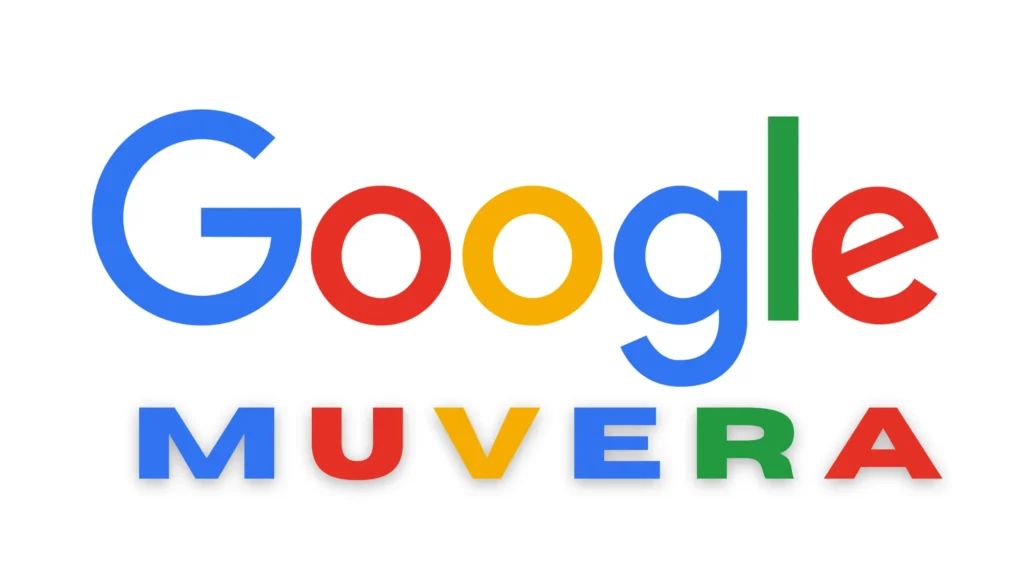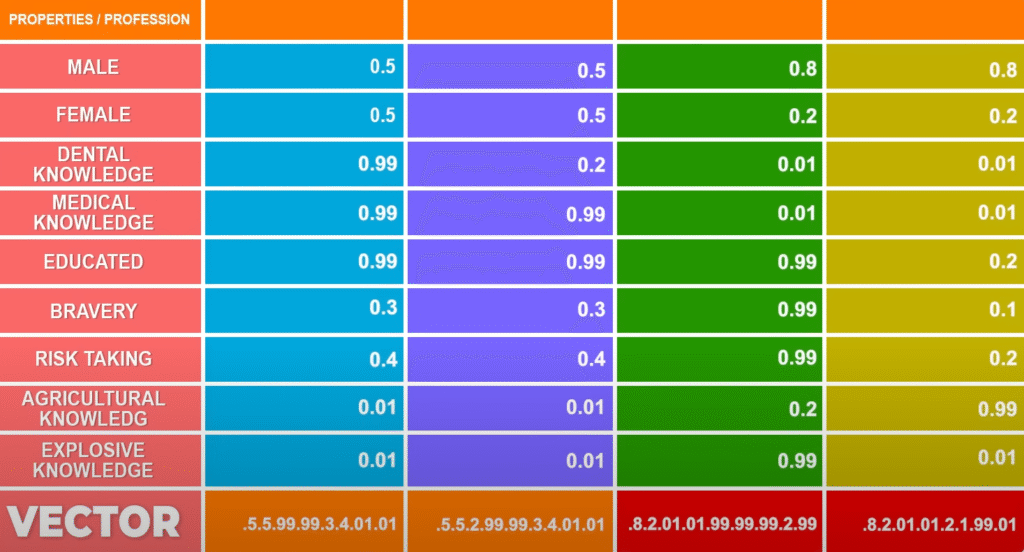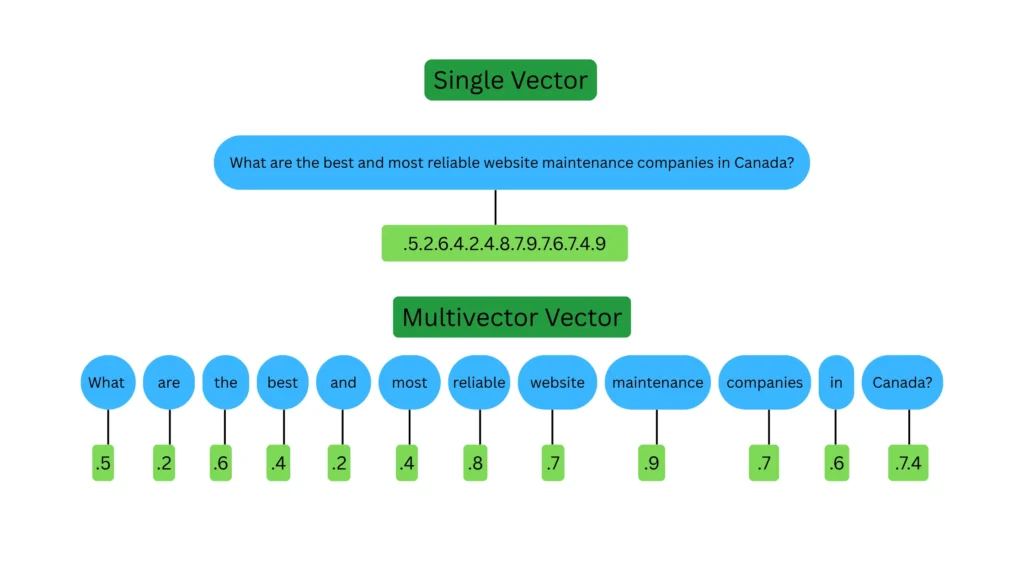
MUVERA stands for Multi-Vector Retrieval Algorithm.
While the name sounds complex, the idea behind it is actually quite logical and builds on how search engines work.
How Do Search Engines Work?
At the core, search engines are all about information retrieval. That means, when you search for something, the engine looks through its database to find pages that best match your query.
In the early days, search engines worked primarily on keyword matching.
For example, if you searched for “How to bake chocolate chip cookies?”, the search engine would look through its stored pages for the exact words: “how,” “bake,” “chocolate,” “chip,” and “cookies.” Then it would show you the pages where these words appear.
This worked well when the web was small — just a few pages or websites.
Why Keywords Alone Aren’t Enough Today
As the internet grew into billions and trillions of pages, keyword matching started to fail in two big ways:
- Slow Searches: Going through so many pages to find keywords took a lot of time and computing power.
- Keyword Stuffing: Some website owners or SEO experts stuffed unrelated keywords just to rank higher, leading to poor search results.
To solve this, Google and other search engines moved from simple keyword matching to something more advanced: vector-based information retrieval.
What is a Vector in Search?
The term vector might sound technical, but here’s a simple way to understand it:
Think of a vector as a list of numbers that represent the characteristics of something.
For example, imagine three people: a dentist, a soldier, and a farmer. Each of these people can be described by several traits, like:
- Gender probability
- Knowledge of dentistry
- Medical knowledge
- Education level
- Bravery
- Risk-taking ability
- Agricultural knowledge
- Knowledge about explosives

For each trait, we assign a number between 0 and 1 (like a percentage but expressed as a decimal). So a dentist might have:
- 0.5 chance male, 0.5 female
- 0.99 dental knowledge
- 0.99 education
- 0.3 bravery
- and so on…
Each person has their own unique list of numbers — their vector.
Source: research.google
Why Use Vectors?
Instead of relying on words, which can be vague or tricky to compare, vectors use numbers to represent different traits. So, even though a dentist and a soldier are quite different in real life, their vectors translate those differences into numbers. For example, a dentist might score very high on dental knowledge but low on bravery, while a soldier scores high on bravery but low on dental knowledge. This helps computers measure how alike or different they are in a clear, precise way — something that’s much harder to do with just words.
Single Vector vs. Multi-Vector Search
When you type a query like “What are the best and most reliable website maintenance companies in Canada?”, Google needs to understand exactly what you’re asking to provide the most helpful results. There are two main ways it can approach this.
The first way is called single vector search. Think of this as taking your entire question and turning it into one combined idea—a single vector—that represents the whole meaning. Google then searches its database for pages that match this overall concept. This approach is fast and efficient, but it can sometimes miss the finer details in your query.
The second way is called multi-vector search. Instead of compressing the whole question into one idea, Google breaks it down into smaller meaningful parts, like “best,” “reliable,” “website maintenance,” “companies,” and “Canada.” It creates separate vectors for each part and searches for all of them individually. This helps Google better understand the different important pieces of your query, so it can find results that match more precisely.

For example, multi-vector search allows Google to separately consider the quality (“best,” “most reliable”) and the service type (“website maintenance companies”) as well as the location (“Canada”). This way, it can show you companies that meet all those criteria. Single vector search might blend all those words together and sometimes overlook the importance of “reliable” or “Canada,” which can lead to less relevant results.
Currently, Google mainly uses single vector search because it’s faster and less costly to process. However, with the introduction of MUVERA, multi-vector search is becoming more feasible. This means in the future, your searches will become even more precise, showing exactly what you need with less irrelevant content.
What Does MUVERA Change?
MUVERA is a breakthrough that allows Google to use multi-vector retrieval in a much more efficient way. What this means is that Google can now break down your search query into its different parts and understand each one separately, rather than treating the entire query as a single combined idea.
By doing this, Google can match each part of your query with the most relevant information on web pages. For example, if your query includes words like “best,” “reliable,” and “website maintenance companies in Canada,” MUVERA helps Google recognize the importance of each part and find pages that satisfy all those aspects.
The result of this improved understanding is that your search results become much more accurate. You are more likely to see pages that truly answer your question instead of unrelated or low-quality content.
Additionally, because Google understands queries and pages better, you will notice fewer irrelevant results or “junk” appearing in your searches. This means less time wasted clicking on pages that don’t really help.
Why Does MUVERA Matter?
For Google, MUVERA is a big technical milestone. It improves how the search engine understands and processes queries without dramatically increasing the cost of searching.
For users and website owners, the impact is indirect but important:
- You will see search results that are more closely related to your actual question.
- Visitors who land on your site will be more interested and relevant, reducing random traffic.
- It will be harder for low-quality pages stuffed with irrelevant keywords to rank.
The Bigger Picture: MUVERA and AI
Vectors play a key role not just in search engines but also in advancing artificial intelligence. By turning words and ideas into numbers, vectors help AI systems grasp the meaning behind language more effectively.
As computers improve at representing complex concepts through vectors, AI tools—such as language models and virtual assistants—will become smarter and more accurate in understanding and generating language.
At the same time, these improvements will make AI systems less expensive to operate. Lower costs mean wider access and faster innovation, benefiting not only search engines but the entire online ecosystem that relies on AI technology.
In short, MUVERA is not just a step forward for search but also a foundation for the next generation of AI-powered services.





